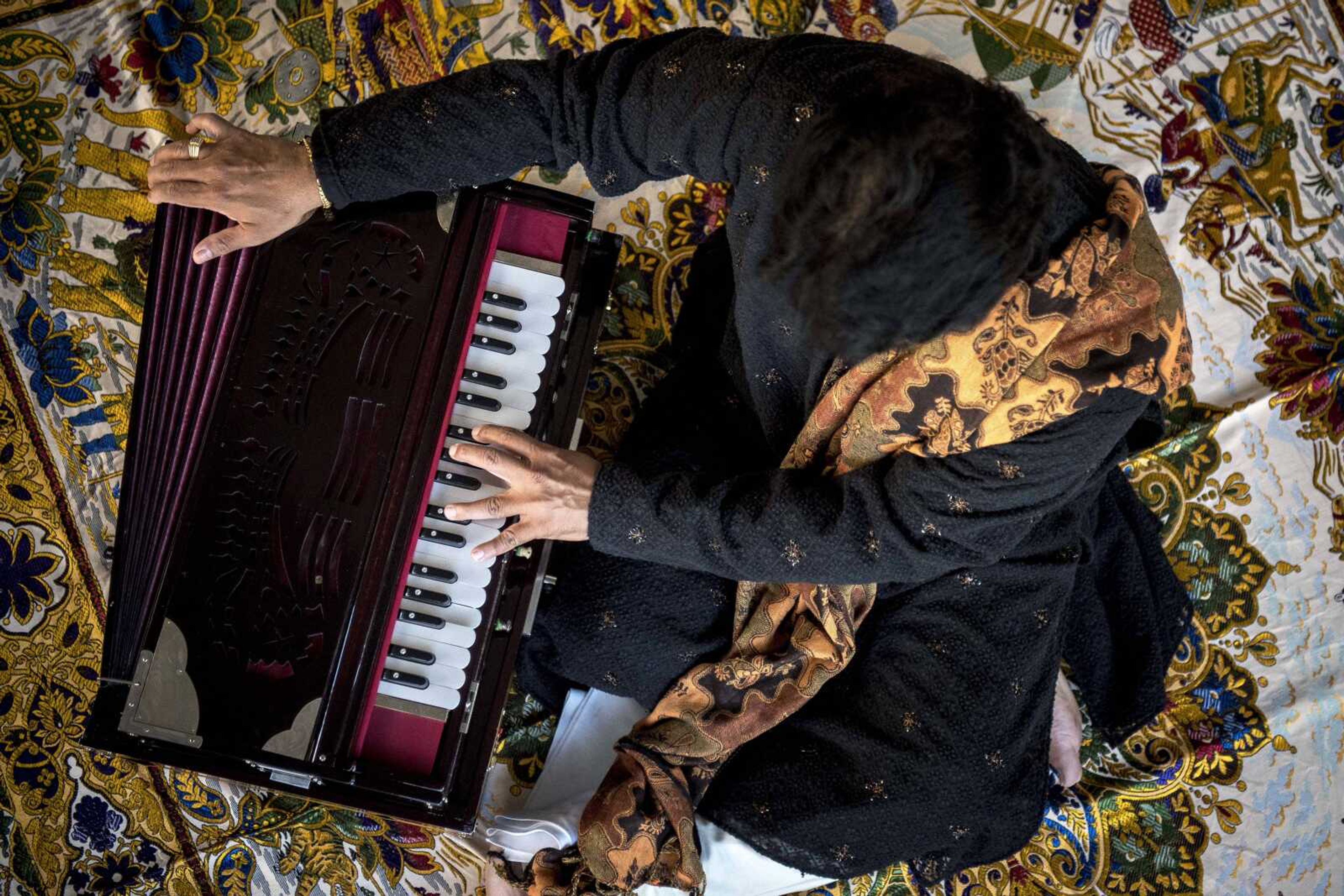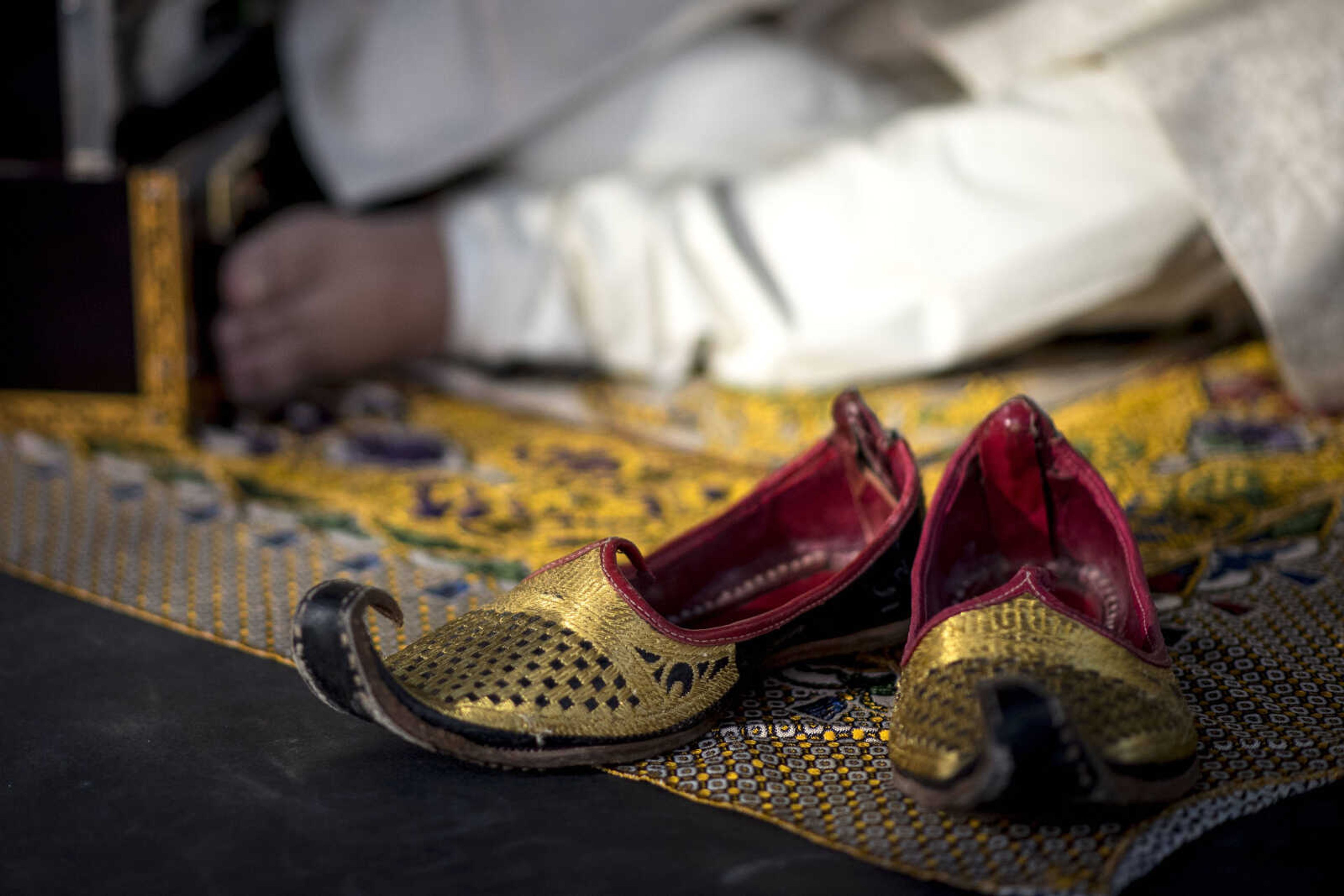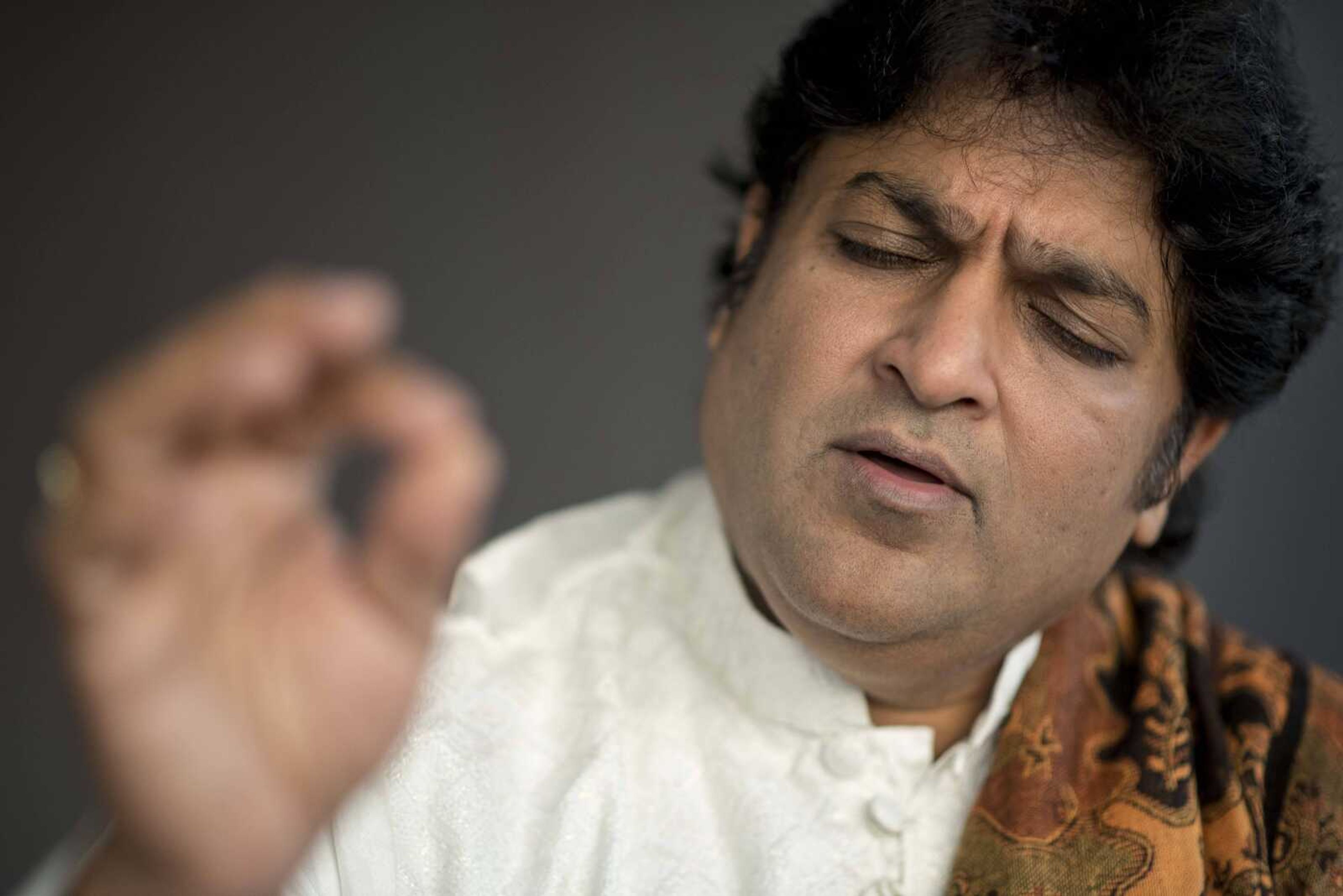The Healer: World-renowned musician Sunil Mungee uses music and health care to connect and uplift
I meet Sunil Mungee at his office in Cape Girardeau's Doctor's Park first thing on a Friday morning. He greets me warmly, with a deep hospitality that belies his talents and status as a world-renowned musician. He offers me coffee; before I leave, he sends me home with a gift bag he's prepared in advance, an expression of his gratitude for my time...
I meet Sunil Mungee at his office in Cape Girardeau's Doctor's Park first thing on a Friday morning. He greets me warmly, with a deep hospitality that belies his talents and status as a world-renowned musician. He offers me coffee; before I leave, he sends me home with a gift bag he's prepared in advance, an expression of his gratitude for my time.
It's a genuine kindness and outward focus that doesn't hint at the prestige due to him: in addition to his Monday through Friday job as director of physician business development at SoutheastHEALTH, Friday evening through Sunday, Mungee plays the Indian instrument called the harmonica and sings his originally-composed music in countries around the world. It's a balancing act of both of the worlds he loves, an act of discipline, rigor and passion, and his story is an interesting one.
It goes like this: at the age of 15, Mungee was chosen by a leading maestro in India to study under him, gaining special permission from the Indian government to stay with the maestro and do private schooling in pursuit of his music career. In this ancient form of teaching, Mungee learned and lived a strict, rigorous discipline for nearly 10 years: each day, he woke up at 3:30 a.m. to practice music, with a break from 7 to 8 a.m. From 8:30 to 11:30 a.m., he would practice more, with lunch and studying his other school subjects from 11:30 a.m. to 3:30 p.m. At that time, he would practice music again until 6:30 p.m., with more school studies until 9 p.m. All together, he regularly practiced music for 10 to 12 hours per day. He did not celebrate birthdays, weekends or holidays, and for the first three years, he was not allowed to see his family. His focus was music, and he loved that.

"I feel that there was not a single day that I felt like I was trapped. Because I felt like, 'Oh, this is the way it should be, and I don't regret it,'" Mungee says. "I had a passion, and I had the interest of learning; it was really flawless for me."
Even when his teacher was not present because he himself was a professional traveling musician, Mungee would practice independently by following his maestro's instructions. Gradually, he began performing small concerts for club and family events, with the goal of being seen and performing for more people. As the concerts began getting bigger, Mungee started performing in countries surrounding India. Next, he made his way to the U.S., where he, from thousands of applicants, received U.S. citizenship under the world music category, so he could represent the U.S. as a musician. Now, he has traveled to each continent -- sans Antarctica -- playing concerts in nearly every country.
It was a different lifestyle for a child from a family of physicians; at the time he was growing up in India, Mungee says it was expected a child of physicians would also become a physician. When Mungee's family heard him sing beginning at the age of four, however, they recognized his gift and worked to cultivate it. Thus, they helped Mungee follow his maestro, Padmashri Pandit Jitendra Abhisheki (the title of "Padmashri" is one of the highest individual awards given by the government of India), passing his music and vocals along to him so Mungee could be chosen by the maestro as a protégé.

Health care is a calling Mungee couldn't completely leave behind, however; for his own mental health as an artist, he found it beneficial to have a career in addition to music through which he could connect with people. He worked in the health care industry in Pittsburgh for 13 years, and when a job opportunity arose in Cape Girardeau, he and his wife, Preeti, and their daughter, Suna, moved to Southeast Missouri in 2012.
"I've spent all my life in the East Coast, so I wanted to try something [new], and when I landed here [in Cape Girardeau], I found out that the people here are extremely fantastic, very nice, very native and very family-oriented," Mungee says. "I came here in 2012. Since then, I have called myself a Missourian."
So Monday through Friday, Mungee talks about health care, and Friday evening through Sunday, he talks about music. He credits the rigorous regime of his early training with allowing him to be able to work at SoutheastHEALTH Monday through Friday, catch a flight to Europe Friday evening, perform on Saturday and fly back to Southeast Missouri on Sunday, followed by a 7 a.m. call at the office Monday morning. In addition, each morning and evening during the week, he practices music.
Beyond the schedules for each profession, Mungee says there is another component that allows music and health care to fit together: healing.
"When I put on my shoes and tie and my suit in the morning Monday through Friday, I have an attitude, 'How can I heal through medicine?' I'm not a doctor, but I manage doctors, and you know, I am part of health care. My focus is, 'How can I give quality care through this organization? And how can the community be benefited because of it?'," Mungee says. "Music soothes. It heals you because everybody has an anxiety, everybody has some physical challenges; some have mental challenges. Everybody goes through that. That's where I feel as an artist, as a performer, as a musician, that God has given me that power to heal people through my tones."
In addition to performing, Mungee also teaches music via Skype to students around the world. This "humble expression," he says, allows him to pass on to others what his teacher taught to him. He also raises funds for charities through his performances; a few years ago, he and a jazz pianist raised $500,000 over the course of 18 shows for an organization called Ekal Vidyalya which opens up new schools in rural India to bring basic education to every child.
"It was such a beautiful year because that year I had my first baby," Mungee recalls. "So, I had been thinking, 'What should I do to thank Almighty that I am blessed with a beautiful daughter?' That's when this organization came to me, and I said I am going to give you this, free of charge. ... I feel like as an artist, yes, it's my so-called business, but it's beyond business because it's for humanity."
Mungee writes ghazals, a form of poetry he says discusses "love, affection, a reality of life," and bhajans, which "talk about the Almighty." He has received the prestigious Sur Mani "Jewel of India" Award, which is awarded to young upcoming artists by one of the most well-reputed music organizations in Mumbai, Sur Singar Parishad, earning himself the title "The Prince of Ghazals and Bhajans."
"The reality is that we all know we all need to love each other, but do we? That's the bottom-line question. We do business, but do we love somebody with no business?" Mungee says while speaking about the content of the poetry he composes music for. "The bottom line is humanity. Every culture teaches you to be nice."
Mungee's composing process looks like this: poets from all over the world send him their poetry. Mungee says if he "feels good about it" and it touches his heart, he composes music for the poem and records it. Mungee's instrument, which is prominent in Indian music, is called a harmonica: it features keys like a keyboard which Mungee plays while he fills the bellow with air, like an accordion. Unlike an accordion, however, Mungee's instrument sits on the floor.
Music has been a way for Mungee to make friends all over the world. He says he treats each performance with the importance as if it's his first concert, giving 120 percent. He has played small concerts before, and he has also played a concert at which 400,000 people were present. To Mungee, however, it is quality over quantity that matters most. This value guides him throughout his writing, composing and creative processes.
"Everyday life tells you something, and as an artist, I am innovative," Mungee says. "You have to be inn
ovative to say, 'Hmm, life is telling me something today, and how can I put those experiences through my words and through my tones and let other people understand that this is what I feel?'"
Mungee realizes success and failure are a part of life; he says failure especially inspires him in his music. It is talking about these concepts through his music and hopefully touching people's hearts with it that inspires Mungee to continue creating and performing.
"Failure should teach you rather than demobilize you," he says. "Keep working on it because if you're a professional, you're a human being. ... Keep working on the values of mankind. So I think these are very spiritual, intellectual, philosophical statements, but I think it matters. It matters because everybody has their ups and downs. Everyone."
Connect with the Southeast Missourian Newsroom:
For corrections to this story or other insights for the editor, click here. To submit a letter to the editor, click here. To learn about the Southeast Missourian’s AI Policy, click here.










